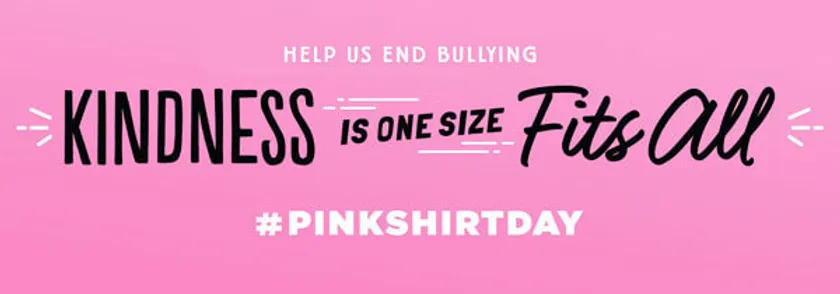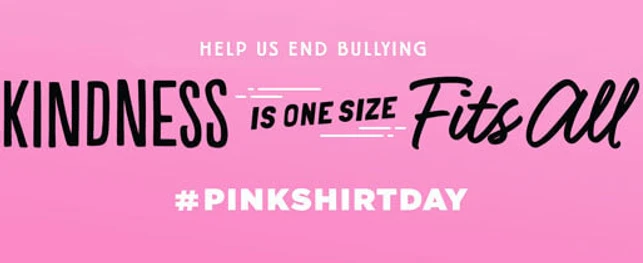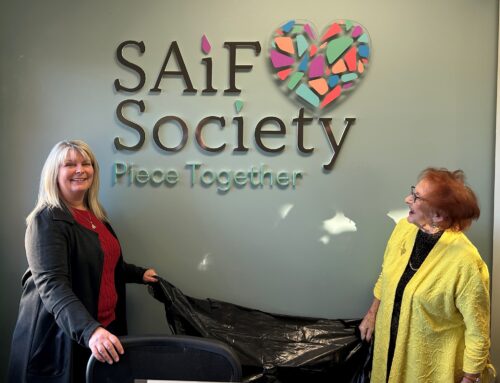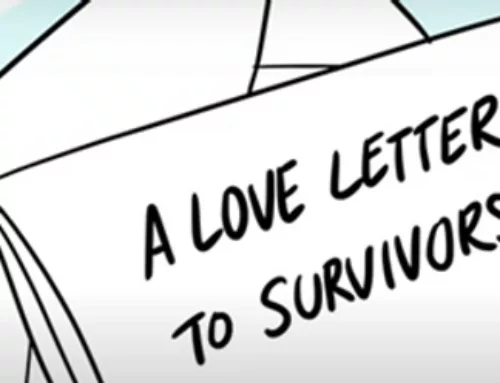At least 1 in 3 adolescent students in Canada have reported being bullied recently*
Chances are, if you think back to your school experiences, you have a bullying story. Sometimes, those experiences can be brushed aside or we’re able to move past them. All too often though, it made our childhood or adolescence a crummy experience. For some of us, we still carry the scars and hurts of those bullying incidents.
And having been affected by bullying and still feeling the impacts of that trauma of abuse (because bullying is abuse) is not about being weak or not being able strong. Most of us, just by virtue of surviving our bullying experiences, demonstrates that. But bullying hurts us in ways we don’t even realize sometimes. For some, it leads to suicidal thoughts or anxiety or depression. At the time, it can feel overwhelming and relentless and unstoppable. And so many of us feel alone when we’re being bullied.
But the significance of Pink Shirt Day is to tell us that we don’t have to be alone if we’re being bullied or if we’ve been bullied and are trying to deal with that. All we need is for people to act and stand up to bullying – non violently, in recognition, acknowledgement, and validation.
Back in 2007, “David Shepherd, Travis Price and their teenage friends organized a high-school protest to wear pink in sympathy with a Grade 9 boy who was being bullied [for wearing a pink shirt]…[They] took a stand against bullying when they protested against the harassment of a new Grade 9 student by distributing pink T-shirts to all the boys in their school. ‘I learned that two people can come up with an idea, run with it, and it can do wonders,’ says Mr. Price, 17, who organized the pink protest. ‘Finally, someone stood up for a weaker kid.’ So Mr. Shepherd and some other headed off to a discount store and bought 50 pink tank tops. They sent out message to schoolmates that night, and the next morning they hauled the shirts to school in a plastic bag. As they stood in the foyer handing out the shirts, the bullied boy walked in. His face spoke volumes. ‘It looked like a huge weight was lifted off his shoulders,’ Mr. Price recalled. The bullies were never heard from again.” – The Globe & Mail.

There are many ways to deal with bullying but the most important thing is to know you’re not alone and you don’t have to be alone if you’re dealing with the impacts of it. And yes, words can be just as powerful as fists in how they hurt us and cause us trauma. If you’re being bullied, please reach out for help. If you see bullying, please call attention to it, or step in if you can do so safely. When we can acknowledge bullying when it happens and work to address it, we can find a way to minimize its impacts and maybe even reduce the incidences of it.
No kid should have to think that bullying is a normal part of school or childhood or adolescence. And it’s more than just wearing a pink shirt. It’s standing up to bullying and for supporting those being bullied or who have been bullied.


